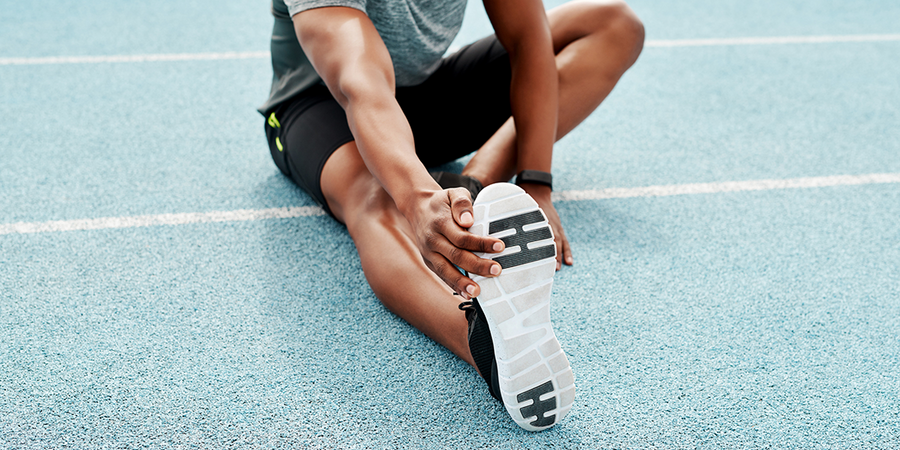
How to Prevent and Treat Sore Muscles After a Workout
By Andrew Heffernan
You leave the gym after a good workout and feel fine the rest of the day. You eat a healthy dinner, drink plenty of water, and bed down for the night. But the next day you wake up feeling like your muscles have been replaced with concrete. Your workout has come back to bite you — right in the muscles you've worked the hardest.
Like stinky clothes and rough palms, delayed-onset muscle soreness (DOMS) is one of the few downsides of hard exercise. And while few seriously fit people have gotten that way without their fair share of sore muscles after a workout, you can reduce the severity and frequency of DOMS with a few simple steps (including the right nutrition).
Reduce exercise-induced muscle soreness and help repair your muscles with LADDER Whey or Plant Protein!
.
Why Do I Have Sore Muscles After a Workout?

Contrary to popular belief, exercise-induced muscle soreness is not caused by the buildup of lactate (what many people mistakenly refer to as lactic acid). Rather, it's rooted in the muscle damage that's a natural consequence of hard exercise. After all, tough workouts cause microscopic tears in your muscle fibers that require about 48 hours to repair. This "micro-trauma" can be hastened by the following:
- Unfamiliar exercises or workouts
- High-impact movements such as plyometrics
- Exercises with a heavy eccentric component (lengthening the muscles under load, like lowering slowly into a push-up or the squat position)
- Big increases in volume (more sets, reps, weight, distance, etc.)
.
How Do I Reduce Exercise-Induced Soreness?
Sore muscles are common after new or particularly hard workouts, but they don't need to be. Take these steps to reduce your risk of experiencing any discomfort.
1. Take it easy when trying something new
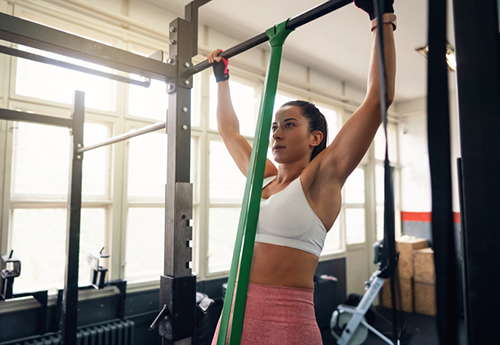
Exercise should be challenging. To make progress, you have to push your limits, try to get a little better each workout, and introduce new and more advanced exercises regularly. All of those things can make you sore for a day or two afterward if you don't dial back your workout intensity a bit to accommodate the novelty.
But the soreness shouldn't be debilitating. Your muscles might be a little tender, but if regular movement makes you wince, you've gone too far. Back off next time and build back up slowly. Rome wasn't built in a day, and neither is a fit body.
2. Select your exercises carefully
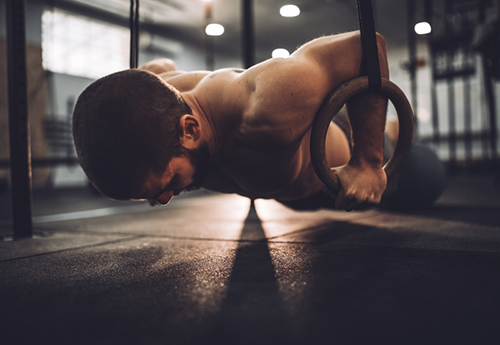
Exercises that stretch your muscles under load (like the pull-up, Romanian deadlift, and dumbbell fly) are especially likely to make you sore the next day. Still do them — controlled, loaded stretching is a great way to get bigger and stronger. Just be careful when you introduce them, and be judicious when you increase reps or load.
Many lifters find that you can control soreness in part by choosing certain movements over others. Your back muscles are less likely to get sore when you pull horizontally (as in rowing movements) than when you pull vertically (as in a pulldown or a pull-up). Your chest and shoulders are less likely to get sore when you push overhead (as in a military press) than when you push horizontally (as in bench presses or pullups). And for your legs, squats and hip thrusts are less DOMS-inducing than lunges and leg curls.
Don't avoid exercises that are more likely to cause soreness later on — just approach them with caution.
3. Refuel with smart nutrition
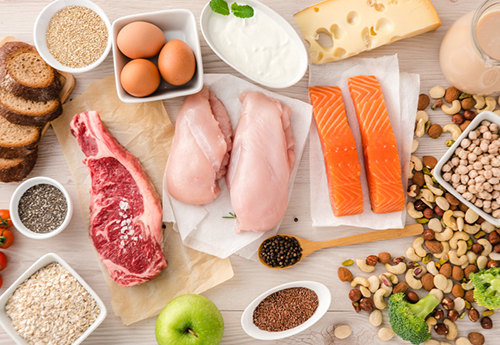
Muscles need proper fuel — in the form of water, healthy carbohydrates, and high-quality protein — to recover and build back stronger.
Healthy adults who exercise need about 0.54 to .91 grams of protein per pound of body weight per day to support muscle growth. That's a lot of protein — up to 137 grams per day to optimally recover from and adapt to your workouts if you weigh 150 pounds.
While most of your protein should come from whole foods, protein supplements such as LADDER Whey and LADDER Plant Protein make it easier to get your post-workout protein and meet your daily protein requirements. Both include tart cherry, which is an antioxidant-like compound that helps reduce exercise-induced muscle soreness. They also provide high-quality protein that can help your muscles repair and recover faster, so you're ready to crush your next workout.*
.
Is It OK to Work Out With Sore Muscles?
If your soreness is severe enough to impact your daily actions (e.g., you have difficulty climbing stairs, sitting down on the toilet, or getting out of a chair), skip your workout and give yourself another day or two to recover. If you're a little sore but are able to move around just fine, go ahead and work out. Either way, that soreness is an indication that you should dial back your exercise intensity a bit.
On the days you feel a little sore, tired, or run-down, you can always swap your planned workout for a lighter one. Stick with gentle walking and cycling or other active recovery in lieu of a normal workout. Days like those are also good for squeezing in yoga, stretching, and foam-rolling sessions.
And, if you're always doing full-body workouts or working a muscle group more than a couple times a week with split training, it might be time to switch up your routine to allow for more rest and recovery.
.
Do Sore Muscles Equal a Good Workout?
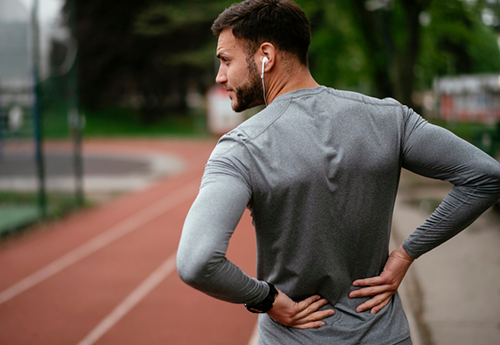
In short, no. "No pain, no gain" is a mantra you can officially banish from your motivational line-up. Soreness is not an indicator of your workout's quality or effectiveness — and research backs that up. Sore muscles after a workout tell you one thing: You went too hard. The goal of every workout is to challenge yourself without wrecking yourself or feeling too sore afterward, so you can get back out there and do it again tomorrow, the next day, and the day after that.



